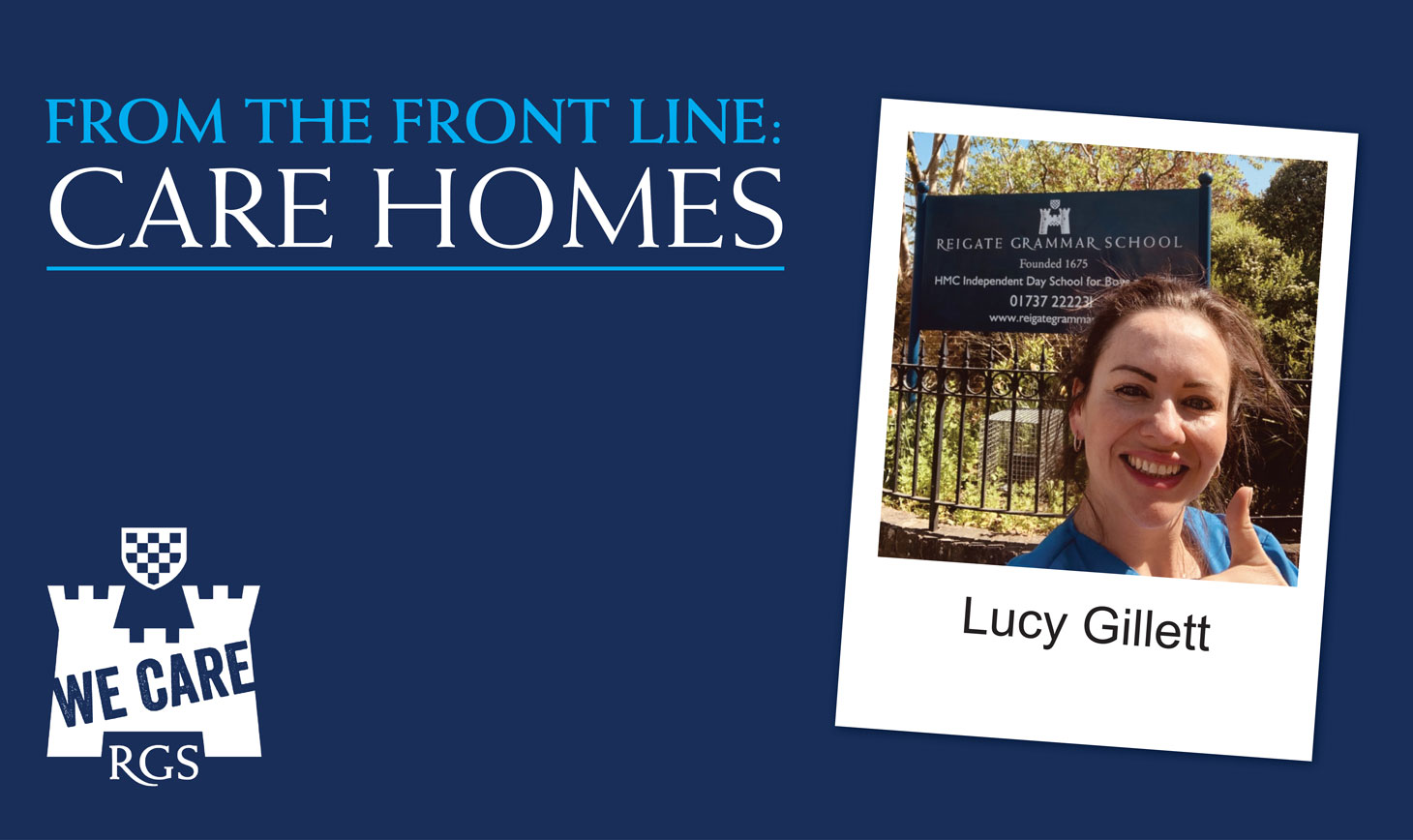
From the front line: care homes
Lucy Gillet is a registered nurse in the Emergency Department at East Surrey Hospital and also runs Gillett Training Services through which she delivers training and consultancy to social care enterprises, supporting a number of care homes in Reigate and the surrounding areas. She first contacted Reigate Grammar School six weeks ago, requesting science goggles for care providers. Since then, we have worked with Lucy to provide other PPE equipment. Lucy explains the difficulties her colleagues and clients in care homes are facing.
“The biggest challenge is finding a way to control the risk. Social care relies on staff who are on a fairly low wage, often juggling several jobs, sometimes going in and out of different care settings. Many homes rely heavily on agency staff, but with some homes facing positive, or suspected, cases of Covid-19, mixed with a limited supply of PPE, if can be a struggle to maintain a full workforce. Not to mention many staff being off sick with Covid-like symptoms and others self-isolating, which is placing a heavy burden on places with skeleton staffing”.
When the crisis began, social care providers were woefully short of protective equipment, with many forced to source their own. The PPE hotline ran thin very quickly and many staff were having to reuse the equipment that they could get their hands on.
Unlike acute admissions to hospitals, care home residents build long-term relationships with the care staff, and both carer and client are emotionally invested. Care staff carry the guilt of knowing they are causing their own families anxiety, working in such high-risk environments on the front line, that is quite often impossible to protect ourselves and social distance in the way we would wish to. For many carers’ families it is hard to fathom that we would knowingly put ourselves at risk, but we would not dream of letting down our clients, knowing how much they rely on us. This is exacerbated when residents need personal, intimate care, which means close contact, yet without sufficient PPE, this poses a considerable risk.
Care-home owners, who are largely running small businesses, feel completely alone and unsupported. Indeed, while the team spirit among staff, and the support from the community has been amazing, most of us have had at least one wobble.
Many establishments are completely locked down, with residents confined to their rooms. This is incredibly hard on their mental health and they miss their families, entertainment, regular routines and other interactions. Some settings are allowing visits for end-of-life, but this is very much discretionary.
Some residents, living with dementia or other conditions, lack the capacity to understand the need for social distancing, so they will wander into communal areas, or other residents’ rooms. Again this is very hard to manage.
Staffing numbers in care homes is based on most residents being in communal areas for a good part of the day. If you have 40 residents in their individual bedrooms, you can’t possibly see if someone has had a fall or needs some other form of help. Many family members also support their loved-one’s care, perhaps by coming in to help feed them dinner. Staffing provision would have taken this into account, so with families barred from visiting, this puts even more pressure on staff.
There will undoubtedly be hidden casualties of this pandemic, too, where people are reluctant to go to A&E for the fear of catching Covid-19 or for fear of further burdening the NHS.
On a positive note, I feel completely honoured to have played such a pivotal role in supporting people through these difficult times. And we are overwhelmed with gratitude for the support we’ve had from the community – including schools. We’ve had donations of kit bags, headbands, face masks, baked goods, cards, paintings – even a recording of an Eva Cassidy song to boost staff moral!
I’m incredibly proud of the job we’re doing and how everyone has rallied together. If one good thing comes from this crisis, I hope it has served to highlight the important role that social care plays and encourages more people to consider careers in this field.”
You can follow Lucy’s PPE campaign on Facebook.
